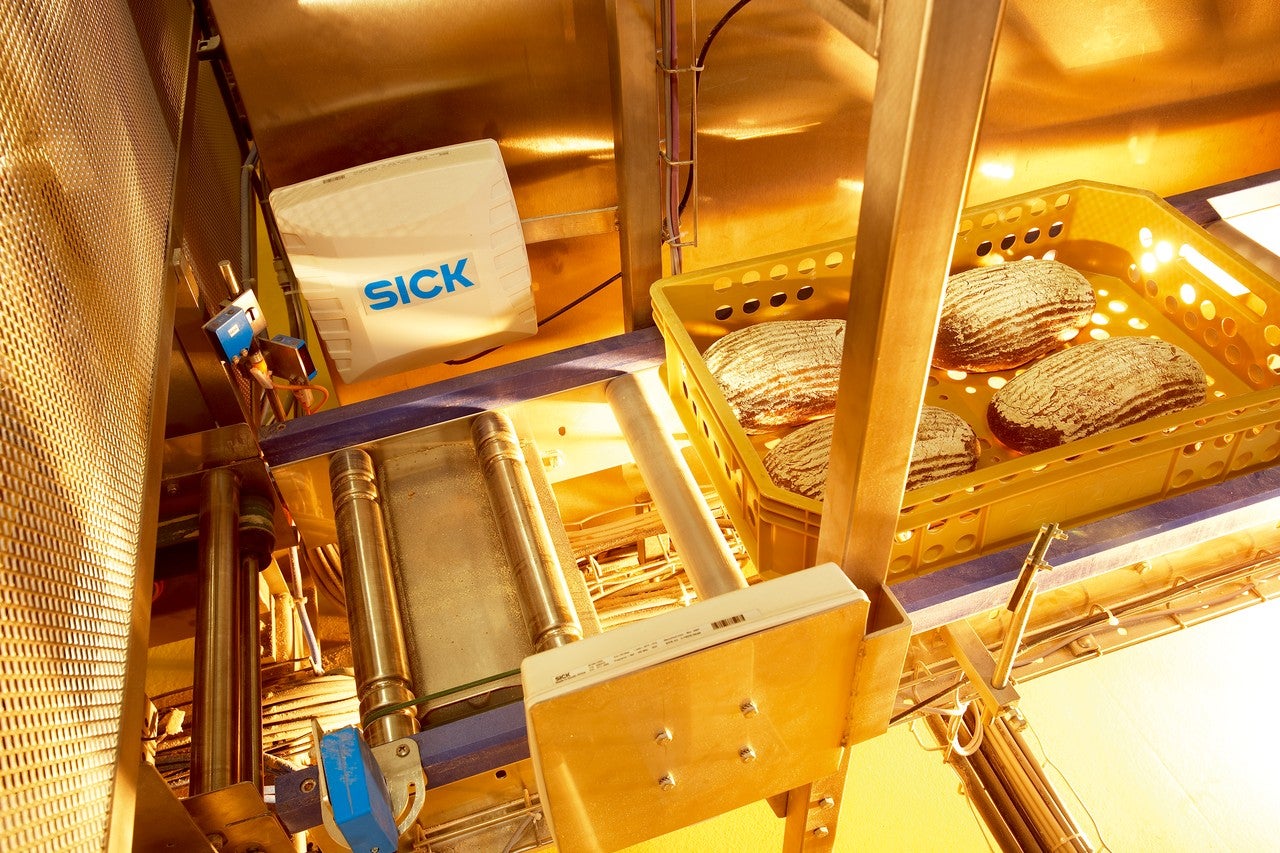
As a world leader in sensor intelligence solutions with over 50 subsidiaries globally, SICK is all about promoting the authenticity and traceability of operation for its customers in the food and beverage industries. Nowadays, more and more consumers are shifting their attention to product processing, and SICK’s solutions are specifically tailored to meet sustainability, safety and documentability standards through its automated, safety technology.
Especially for the increasingly important matter of quality control, SICK supplies customers with hygienic sensor technology that ensures food and beverage products are protected. With consumer concerns over sustainability and cleanliness of production, SICK proudly meets the European Hygienic Engineering & Design Group standards and recommendations by guaranteeing continuous sterilisation while also maintaining a high level of functionality and safety for the people and the environment.
Authenticity and traceability are maintained through a sharp focus on and sensitivity towards the product, which is reflected throughout the whole SICK automation process, promising customers safety of operations and clean production in the food industry. An example is SICK’s Hygienic Design mounting system, which reduces the risk of product contamination by bacteria, especially for meat processing.
Additionally, production and precision in food processing are enhanced by no-contact technology such as the 3D vision cutting system, craftily designed for cutting precision, flexibility and high sensitivity, thus reducing minimal waste and saving cost for customers. For an increasingly conscious consumer on environmental protection, waste minimisation and product detention for processing are huge advantages that SICK brings to its clientele.
‘Track and trace’ authenticity and traceability solutions
Food and beverage product authenticity is extremely important for ensuring that both process and end-result conform to health and safety standards for the food and beverage industries. More specifically, SICK’s focus on quality control makes each step of the supply chain transparent through the Cloud-based automated processing of a variety of factors that safeguard the quality of goods such as via the Asset Monitoring System, which compares data on food quality. SICK’s innovative product control is actualised with the use of an inspection system that can seamlessly and reliably process product data such as volume and colour while also working at high speed and harsh, changeable conditions.
This guarantees that the products of SICK’s customers meet all the authenticity requirements and answer the customer need for transparency and traceability that comes from efficient automation. According to SICK Australia and New Zealand marketing manager Gina Mitchell, “Reliable identification of objects is a prerequisite for a smooth packaging process which lays the foundations for traceability and continuous quality improvement. SICK offers a wide range of both permanently installed and mobile readers for bar codes, 2D codes and RFID technologies.”
The ‘track and trace’ system that SICK follows makes clearer the food’s entire production process from its origin to its packaging through sensors that gather data and efficiently promote product quality.
The authenticity of food and beverages has been compromised for a long time, but SICK automated sensor intelligence offers viable solutions for processing multiple factors at the same time while keeping production at high speed and in hygienic conditions. This is reflected in the effectiveness of tracing product authenticity through serialisation, as well as the different factors that sensors can take into consideration such as temperature, position, shape, dimensions, shape, volume, flow, etc. Solutions such as 1D, 2D, 3D code readers and RFID are top-quality data collectors that enable traceability for the products.
In the beverage industry, for example, consistent temperature monitoring is a must, and the SICK temperature sensor meets hygienic standards through its corrosion-resistant material. In food zones, the hygienic sensors are constructed in such a way as to reduce the need for cleaning processes and energy because of the reduced amount of product deposits.
Also, in line with Hazard Analysis and Critical Control Points (HACCP), scanners are equipped with plastic instead of glass windows to prevent product contamination. As these are only a few examples in a series of measurement sensors offered by SICK for the food and beverage sectors, these technologies are all part of SICK’s systems for monitoring and controlling product flow, quality, and sustainability in varied conditions.
SICK and sustainability in the food and beverage industries
From innovative ideas to the actual end-result product, whether this is standing alone or as a system in a network, SICK solutions deliver top-quality results to serve the world’s leading food processing industries in a sustainable manner. Sustainability in authenticity and traceability are among the company’s top ethics, and this applies to every adaptable sensor technology that SICK supplies to customers.
By being part of multiple research and development (R&D) centres around the world, SICK is among leaders for innovation in sustainability through energy-efficient, environmentally friendly and minimal-waste solutions for the food and beverage industries. SICK works with the aim of ensuring safety for both people and the environment through technologies that protect personnel and machines from injuries and damages, all within a culture that encourages respect towards the environment and constant evaluation of environmental practices.
In this way, SICK is pioneering sustainable food production by enabling sensitive product handling, accuracy in data collection and food processing, as well as a considerable waste reduction that benefits both the environment and cost management for the clients. Gina Mitchell comments that “SICK sensor and system solutions enable our customer to release their own suitability commitment by reducing production wastes, improving energy efficiencies, monitoring emissions, and promote technologies working well on emerging environmentally friendly packaging materials”. Sustainability and traceability of a product’s origin and process are major growing criteria when consumers choose food and beverages, and SICK stands by the side of its customers to answer their needs and demands.
To see all of our available cutting-edge technology system solutions, please visit the URL that is included in the ‘Contact Details’ section of our website.









